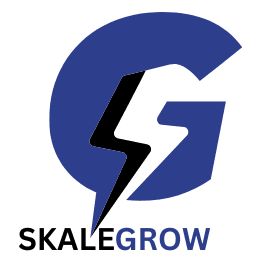B2B marketing is changing fast. While the AI revolution on one side is fundamentally resetting our approaches to marketing, a shift towards demand generation and organic marketing is paving the way for a fresh perspective in the space. This requires founders and marketing leaders to modify their strategies to fit the needs of the modern B2B buyer. To do this, it is necessary for them to stay abreast of the latest trends in B2B marketing.
Since there is a lot to look at in terms of trends in B2B marketing, I will be publishing this as a 3 part series where we will cover the following areas:
- Content marketing
- SEO
- General B2B marketing trends
- Social media marketing
- Email marketing
- Video marketing
- Demand generation
- Paid marketing
- Event and webinar marketing
- Outbound marketing
In today’s article, we will discuss the first three on the list – content marketing, SEO, and a few common trends that cut across multiple areas in B2B marketing.
Let’s begin, shall we?
Setting the context
Most often, trends are set based on what has been happening in recent times in a space. For example, for us to know how content marketing will change in 2024, we need to look at the key trends that are shaping the industry now. However, we also need to have a future outlook and predict upcoming trends that might not be as evident today.
This article covers both perspectives. We will look at some data points that show how marketers look at marketing today in addition to exploring where the marketing world is headed in the next 1 to 2 years.
B2B content marketing trends
1. AI trends in B2B content marketing

No article on marketing trends will be complete without discussing AI. Generative AI has made content creation easier and faster for B2B marketers. According to the Content Marketing Institute, 72% of B2B marketers say that they use generative AI tools. From researching headlines to writing drafts and proofreading, AI is used for a wide variety of content creation tasks. This shows how widespread the adoption of AI has become when it comes to content creation.
Also read: The New Era Of Generative AI In Marketing – GPT-4 And Beyond
Also, according to Authority Hacker, 81.6% of digital marketers think content writers’ jobs are at risk because of AI. Hence the future will see more and more content marketers learning to use AI tools like ChatGPT, Jasper, Copy AI, and the like to stay relevant and make sure they don’t become obsolete.
To learn more about how AI is changing the way content is written, check out the below article:
AI In Content Marketing: How Content Writing Is Changing
2. Speed and resource dependency in B2B content marketing
One of the biggest challenges B2B content marketers face today is the excess dependency on other stakeholders. They can be the company’s own SMEs (Subject Matter Experts), agencies, freelancers, or other vendors. AI has helped reduce this to a large extent with the ability to do the following:
- Create content ideas and outlines
- Create short-form and long-form content.
- Consolidating relevant data points
- Summarizing content
While AI walks the first mile, content marketers can now take care of the last mile as they make necessary modifications to AI-generated content.
But it’s not just AI that has resulted in an increased speed and utilization in B2B content marketing. Marketers today have come up with processes and systems that help them create more content with less.
One of the methods that has helped with this is content clustering and content repurposing. Learn in detail about this tactic in the below article:
Content Clustering And Repurposing – Building A Scalable B2B Content Strategy
Creating processes like these and building SOPs (Standard Operating Procedures) around content creation have helped increase speed and efficiency apart from reducing resource dependency. The future will see more of this happening as marketers are expected to do more with limited budgets and resources.
3. Gated content vs ungated content
This has been a topic of debate forever in the B2B content marketing world. The traditional method of marketing involved gating valuable assets, using that as a way of collecting emails, and using those email IDs to use different kinds of remarketing activities. However, the new school of thought in this area takes a completely opposite approach.
It is anchored on ungating all the valuable assets and having your prospects come to you when they are ready to buy rather than forcing them to share their contact details. This method has many advantages:
- It improves the quality of the leads you get because only those who have a clear intent will fill out your forms. Due to this, your conversion rates also go up.
- Your marketing and sales teams do not have to spend their precious time going through hundreds of leads every month and qualifying them manually. This saves a ton of time and resources.
- You end up having more people consume your content since they do not have to submit their contact details.
Despite these advantages, I believe the future will see a good balance between the two approaches. The challenge with the latter is that not everyone is good at creating such high-quality content and amplifying their organic reach across platforms. For companies like those, using their prospects’ email IDs to directly reach them through a more frequent campaign (say a weekly newsletter) is a more effective approach.
4. The line between content and other functions will fade
Right now, many see content as a separate function from communication, branding, or even demand generation. However, this line has already started fading. According to the same study published by MarketingProfs and cited by the Content Marketing Institute, 70% say that their organizations integrate content strategy into overall marketing sales/communication/strategy.
This means that content will become more of an integrated function than just a group of content writers and SEO professionals. Rather than just understanding content and SEO, content marketing professionals will have to be more aware of the impact of content on the overall business outcomes. This will also lead to content creation becoming more targeted and business-oriented than just based on SEO or what competitors are doing.
5. More early-stage startups will jump onto the personal branding bandwagon
There was a time when personal branding was only for freelancers and consultants on platforms like LinkedIn and YouTube. But not anymore. Many startup and early-stage founders are already leveraging these platforms to increase the reach of their businesses.
According to Forbes, the 2021 Edelman Trust Barometer U.K., states that 63% of the survey’s 33,000-plus respondents said they believe that “CEOs should hold themselves accountable to the public and not just to the board of directors or shareholders.” And personal branding is one of the best ways for CEOs and key leaders to converse with the public on a regular basis.
Also, we already see many B2B businesses built today leveraging the personal brand of the founder. Examples include Refine Labs, Exploding Topics, and SparkToro. Not that they are not using other means of marketing. But it’s just that the founder’s brand has contributed significantly to these businesses’ growth.
B2B SEO trends
SEO is getting more and more difficult. While Google states E-E-A-T (Experience, Expertise, Authoritativeness, and Trustworthiness) as the key criteria for ranking any content, it’s still difficult to predict the outcomes accurately from your SEO efforts. This is not to say that SEO doesn’t work. It is a science and an art. However, the focus on structured elements (such as a schema markup for example) is decreasing and the quality of content is becoming more important than ever.
Let’s understand this through some key SEO trends.
1. How AI is changing SEO
Many tools have emerged in the market in the last few years that leverage AI to automate and improve the effectiveness of SEO activities. Here are some of the ways in which AI helps with SEO:
- Delivering search engine results
- Discovering keyword and ranking opportunities
- SEO scaling and automation
- SEO content ideation, generation, and optimization
- Optimizing for voice search
- Enhancing user experience
To learn more about the applications of AI in SEO, please read the below article:
Using AI to improve SEO effectiveness.
The future of AI in SEO definitely looks bright with a likelihood of a stiff competitive landscape emerging. This is because of two reasons:
- Specialized AI SEO tools adding more functionalities in an attempt to make them an ‘all in one’ SEO platform.
- Popular SEO tools like Ahrefs integrating AI features.
We will also see AI SEO tools improving in accuracy in addition to having the ability to better understand the factors that impact the ranking of content.
In addition to this, with the advent of SGE (Search Generative Experience), SEO professionals need to focus more on delivering the right information than trying to lead users to visit the website at any cost. Check out the below video to understand the impact AI will have in general on content and SEO:
2. Search engines becoming more intelligent
With AI becoming more advanced, search engines are getting better at understanding content. Using techniques like NLP (Natural Language Processing), search engines can understand what your website is about, what type of content it has, and which SEO elements a page has. This would mean the following:
- Keyword stuffing and including keywords for the sake of it won’t work in the future.
- SEO will become ‘less structured’ with the relevance of things like schema markup fading over time.
- E-E-A-T will become more relevant than ever.
3. Brand visibility will have more impact on organic reach
One unspoken truth in the world of SEO is that your brand’s visibility has a positive impact on your on-page and off-page performance. This is going to become a more mainstream thought in 2024 and beyond. Given that off-page SEO techniques like social bookmarking and PDF submission do not work as they used to for building domain authority, naturally building links will be one of the best ways of improving domain rating.
Building natural backlinks is about creating great content that people would want to share and link to without you even asking for it. If you are a known brand, people feel more comfortable linking to you. The very fact that I linked to one of Content Marketing Institute’s articles in this blog post is a testament to this.
4. Niche industries will start tapping into SEO more
Niche industries have always lagged behind when it comes to implementing SEO best practices. The embedded systems industry is a great example of this. This is primarily because such businesses are built primarily using channels like events, industry magazine promotions, partnerships, sales, and the founders’ own network.
This has left a huge void in terms of the utilization of SEO as a tool for growth in such industries. Search engine results in these sectors have been dominated by online magazines, media companies, and independent bloggers. This is set to change in 2024. We will see more and more niche businesses trying to include SEO as a key growth tactic since it is way less competitive for them compared to a more commoditized industry like IT for example.
General B2B marketing trends
So far we discussed the top B2B content marketing and SEO trends. In this section, let us look at some trends that are (or will be) redefining marketing entirely. There will also be a few that cut across 2 or 3 areas of marketing alone.
1. AI B2B marketing trends
We already touched upon this. AI will impact almost all areas of marketing. Only that its adoption rate will differ. It will impact domains such as content, emails, SEO, video marketing, paid ads, etc. To learn more about the latest AI trends in marketing and how B2B marketers should adapt, have a look at the below article:
Marketing In The AI Era – How B2B Companies Should Adapt?
2. Integrated marketing in B2B
We discussed in the content marketing trends section that the line between content and other functions will fade. That can be considered a part of the integrated marketing meta trend. In large organizations, having specialized teams for everything often creates silos and makes synergy difficult to achieve. The future might see teams within the marketing organization becoming more integrated with each other.
Now, what does this mean in a practical sense?
The thing is, how this trend manifests in different organizations will completely depend upon how each wants to build its org structure. However, following are some of the possible characteristics of an integrated marketing team:
- Demand generation will be one of the key focus areas. This essentially means that a lot of functions or marketing leads would roll up to the head of demand gen. These could include content, branding, PR, communications, SEO, etc. Startups and early-stage companies will continue to be characterized by a small marketing team with each person wearing multiple hats.
- Marketing will have goals that are closer to the overall business objectives – such as revenue and pipeline. This will lead to having a central dashboard that at least every team lead or department head within the marketing org has access to (and has to analyze on a regular basis).
- Marketing ROI calculation will be more business-driven. While individual leads like performance marketing managers will have their own goals, the demand gen head and CMO will be responsible for delivering business outcomes. This is already happening but the adoption will be much higher in the coming years.
- Marketing channels will no longer be seen in isolation. SEO will complement email. Email will support video marketing. Events will help increase brand visibility. Long-term brand visibility will help with SEO (in the form of increased backlinks and brand-related searches for example). In short, there will be a lot of interplays between different marketing channels.
Related article: How To Integrate Email Marketing With Other B2B Marketing Channels
Final words about B2B marketing trends
Trends keep changing. Some stay for the long term. Some disappear as if they never existed. But the fundamentals of marketing remain the same. So walk with the trends only to propel your business forward. Basics like having a good offering, value proposition, key differentiators, positioning & messaging, etc., can’t be ignored. Companies that have stood the test of time are those that built sustainable marketing engines without getting too obsessed with trends and shiny new things.
In the next article in the series, we will have a look at some more trends that will shape the future of B2B marketing. So follow us to make sure you don’t miss such insightful content.
About the author

Naseef KPO is the Founder and CEO of Skalegrow. He comes with rich experience across multiple areas of B2B marketing including content marketing, demand generation, SEO, account based marketing, marketing analytics, revenue attribution, marketing technology, etc. He writes thought-provoking and relevant articles on The Skalegrow Blog and his weekly LinkedIn newsletter Elevate Your Marketing.
Prior to starting Skalegrow, Naseef led large marketing teams in multi-million dollar B2B organizations where he made significant contributions to the topline growth of the business. He has also appeared on numerous podcasts where he shared his thoughts on trending marketing topics such as the application of AI in marketing, startup marketing, ABM, and B2B content marketing, just to name a few. Being the founder of Skalegrow, he is currently focusing on helping its clients stay ahead of their competition by using innovative yet practical marketing tactics.
You can connect with Naseef KPO on LinkedIn.


